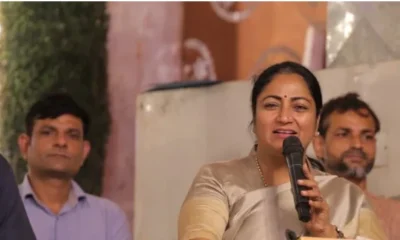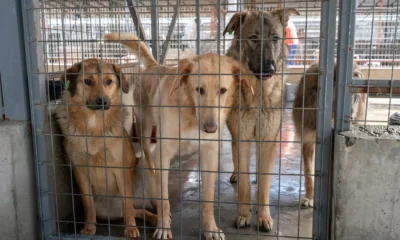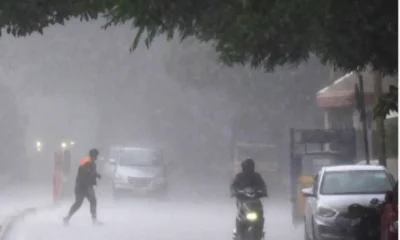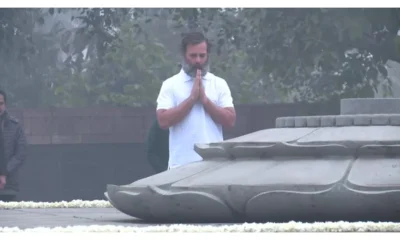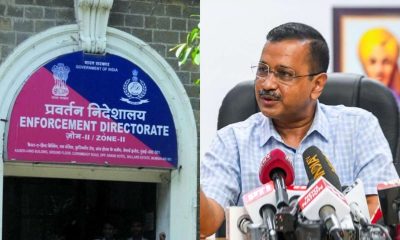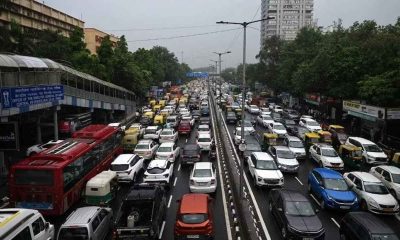[vc_row][vc_column][vc_column_text]Restrictions on use of private vehicles – ban plying of non-CNG vehicles or implementing odd-even scheme covering all – are the only options available for bringing air pollution levels down in Delhi-NCR, the Environment Pollution (Prevention and Control) Authority (EPCA) has said.
EPCA chairperson Bhure Lal wrote to the Central Pollution Control Board (CPCB) member secretary on Wednesday asking it to consider steps regarding private vehicles, in the inevitable scenario that weather conditions deteriorate and air pollution spikes.
Lal asked the CPCB member secretary Prashant Gargav to discuss the options with the Graded Response Action Plan (GRAP) task force and revert to the Supreme Court-mandated body.
Lal had written to the Delhi government as well as the pollution control body on Monday, saying that if pollution continues to rise there was “no other option but to direct a complete stop on the use of private and commercial vehicles other than those plying on CNG”.
In Wednesday’s letter, Lal said that vehicles contribute 40 per cent of the total emission load in Delhi and around 30 per cent of emissions in the NCR. “Even after removing trucks and other diesel commercial vehicles, which are the highest segment of this pollution load, the remaining vehicles add up to substantial load, particularly private diesel vehicles which contribute substantially to both NOx and PM emissions,” stated the letter.
He added that “other cities like Paris or Beijing include restriction on private vehicles, which is done either by number plate or by fuel type/age”.
Lal further said that while the Supreme Court had identified vehicles by fuel type and age and directed for a vehicle scheme, which is yet to take off, the only option left was to “look at either a complete ban on all private vehicles (without the identification of petrol or diesel), other than CNG and/or restriction on plying by number plate (odd-even).”
However, he conceded that restriction on private vehicles without adequate public transport “creates huge inconvenience to people.”
“It is for this reason that EPCA, for the past many years, has stressed on the need for augmentation of public transport, not just in Delhi but in the NCR. The Comprehensive Action Plan, (CAP) which is now notified but still nowhere close to implementation, includes time-bound action on public transport,” Lal said in the letter.
Intermittent and scattered rainfall has improved Delhi’s air from ‘severe’ to ‘very poor’ category. But Lal warned that “rain can also lead to increase in air pollution, as the moisture traps pollutants”.
According to the Met Department, with the wind direction changing and increasing in speed, and crop burning likely to stop soon, the worst of the November’s air pollution could be behind.
But Lal wrote that this didn’t mean that this was permanent. “Since Delhi is greatly responsible for its poor air quality this does not mean that air quality could not once again decline in the coming months. It is now clear that the region’s own sources of pollution are greatly responsible for the poor air quality we have seen in the past 15 days,” he wrote.
Crop burning can ‘exacerbate’ the situation, but it is also clear that “even if we eliminate crop burning in the coming months, weather conditions will only get more adverse.” With increasing cold, air pollutants will get trapped and Lal said that the need of the hour was to be better prepared.
Explaining its decision to overturn measures such as ban on construction activities, Lal wrote that he was acutely aware of the economic woes of daily labourers, who went without jobs because of the closure of construction and other industrial activities in the capital.
“It is, therefore, clear that-we cannot impose these emergency measures as a proxy for our inaction on long term emission reduction.”
Regarding the entry and exit of trucks in Delhi, he wrote, “It is also clear that the ban on truck entry into Delhi led to improvement in air quality, but again, it cannot be sustained over the 3-4 nights that we imposed it this time. The number of Delhi-bound trucks at the border increased enormously and the situation could have gotten out of hand. Furthermore, halted trucks add to congestion and inconvenience of people who live in nearby cities.”
“The question then is, if actions on these crucial measures like public transport are inadequate, should we also not include emergency measures to restrict private vehicles on the days when pollution episodes peak and in particular when there is a prolonged period of high air pollution?” he said.
Delhi government officials, according a report in The Indian Express (IE), said the EPCA’s recommendations are “unimplementable”. “Delhi simply does not have the capacity to enforce a ban on all non-CNG vehicles or include all vehicles in odd-even. That is why the government went to the Supreme Court against the order passed by NGT. In any case, pollution levels in Delhi are improving and the crop burning season in Punjab and Haryana is also coming to an end. We are hopeful that a situation where such drastic measures need to be imposed are not going to repeat in this season,” a senior government official told IE.
[/vc_column_text][/vc_column][/vc_row]


 India News10 hours ago
India News10 hours ago
 India News11 hours ago
India News11 hours ago
 LATEST SPORTS NEWS10 hours ago
LATEST SPORTS NEWS10 hours ago
 India News10 hours ago
India News10 hours ago
 Latest world news4 hours ago
Latest world news4 hours ago
 India News3 hours ago
India News3 hours ago
